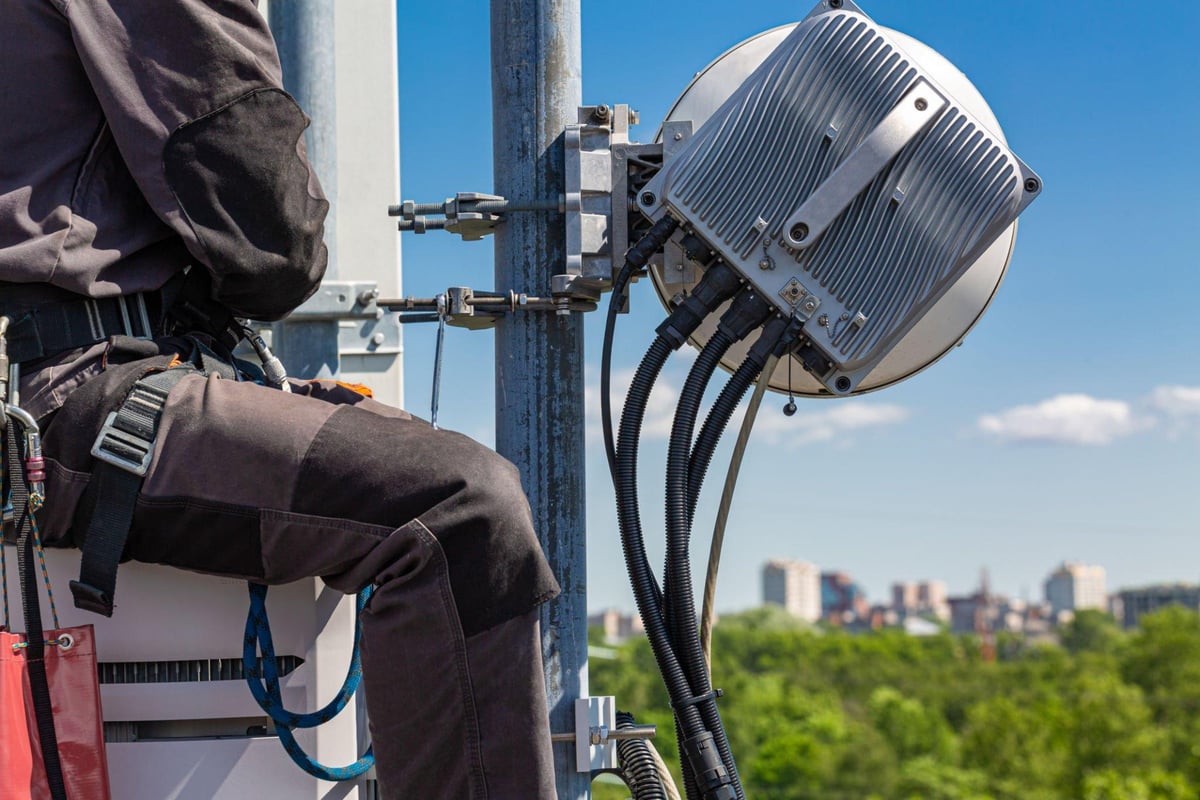
No cost info

Financial aid (may be available)

Financial aid (may be available)

Financial aid (may be available)
Are you considering a career as a Tower Technician and looking for suitable training programs near you in Seattle? This blog post offers a comprehensive guide to understanding what it means to be a Tower Technician, what the training requirements are, what to look for in a class, and what to expect from the day-to-day class. Additionally, we'll take a look at the certification process, how to find related jobs, and what other classes you can take after becoming a Tower Technician.

A Tower Technician, also known as a Tower Climber, is a professional who installs, maintains, and repairs cellular tower equipment. They often work at great heights and in various weather conditions, ensuring that our communication networks remain active.
To become a Tower Technician, you'll need to undergo a specific training program. These programs generally cover areas like:
Safety protocols: Tower Technicians often work at great heights and in challenging conditions, making safety training a critical part of their education.
Installation and maintenance procedures: These cover the nuts and bolts of the work, including how to install, maintain, and repair various types of communication equipment.
Industry standards and regulations: This aspect of the training ensures that you're familiar with the rules and regulations that govern the industry.
When choosing a Tower Technician class, consider the following:
Comprehensive curriculum: The course should cover all the necessary topics, including safety protocols, equipment installation, and industry regulations.
Hands-on training: Practical experience is key in this field, so look for programs that offer plenty of hands-on training.
Experienced instructors: Teachers should have real-world experience in the field and be able to share insights that you won't find in textbooks.
The day-to-day class experience for a Tower Technician training program can vary, but it often includes:
Classroom instruction: This is where you'll learn the theoretical aspects of the job, including safety protocols and industry regulations.
Practical exercises: You'll get hands-on experience with the equipment and techniques you'll be using in the field.
Field trips: Some programs may include visits to actual communication towers for real-world experience.
Upon successful completion of a Tower Technician training program, you'll need to obtain certification. This usually involves passing a written and practical exam that demonstrates your knowledge and skills in the field.
Once you're certified, there are numerous job opportunities available in the telecommunications industry. Some Tower Technicians may choose to specialize in certain areas, such as installation or maintenance, while others may work in related fields like network support or equipment testing.
After becoming a Tower Technician, you may choose to pursue further training in related fields. For instance, a class on how to become a HVAC Technician could open up opportunities in the mechanical side of telecommunications equipment installation and maintenance.
With experience and additional training, Tower Technicians can progress to supervisory or managerial roles. Some may even choose to start their own telecommunications installation and repair businesses.
The telecommunications industry is always evolving, so continuing education is crucial. Whether it's learning about new equipment or staying up-to-date with industry regulations, ongoing learning is a big part of being a Tower Technician.
Building a professional network can be incredibly beneficial for Tower Technicians. Joining industry associations, attending conferences, and connecting with peers can offer opportunities for learning, job hunting, and career advancement.
Becoming a Tower Technician can be a rewarding career choice, offering opportunities for hands-on work, problem-solving, and continual learning. If you're in Seattle and considering this path, start by finding a comprehensive training program that fits your needs. Remember, the journey doesn't end with certification - continual learning, networking, and career progression are all part of the package. Happy learning!
For more information on vocational training programs in Washington, you may want to read abouthow to become a Certified Medication Aide.
Navigate the certification journey in this field with Dreambound's detailed guides, each crafted for various cities. For a deeper understanding of the process in other states, our additional guides may be able to help.
If you're exploring various professional paths, Dreambound has in-depth guides to help assist you. Explore a few of these resources below.
Dreambound's platform allows prospective students to find the right educational program for them through searching, filtering, and connecting with our extensive selection of career & technical education partners.
Dreambound has over 70 programs across healthcare, technology, business, and industrial trades. This includes programs such as Medical Billing, Cybersecurity, and welding.
Some of our schools offer financial aid for those who qualify. Many others offer payment plans, where you can pay the cost of class over time.
Yes, Dreambound offers many online programs. On Dreambound's search, you can filter by online, in-person, and hybrid (part online, part in-person).
Dreambound is completely free for you to use! We are supported by schools and organizations who pay to advertise on our website, so we can offer all of our career resources for free.